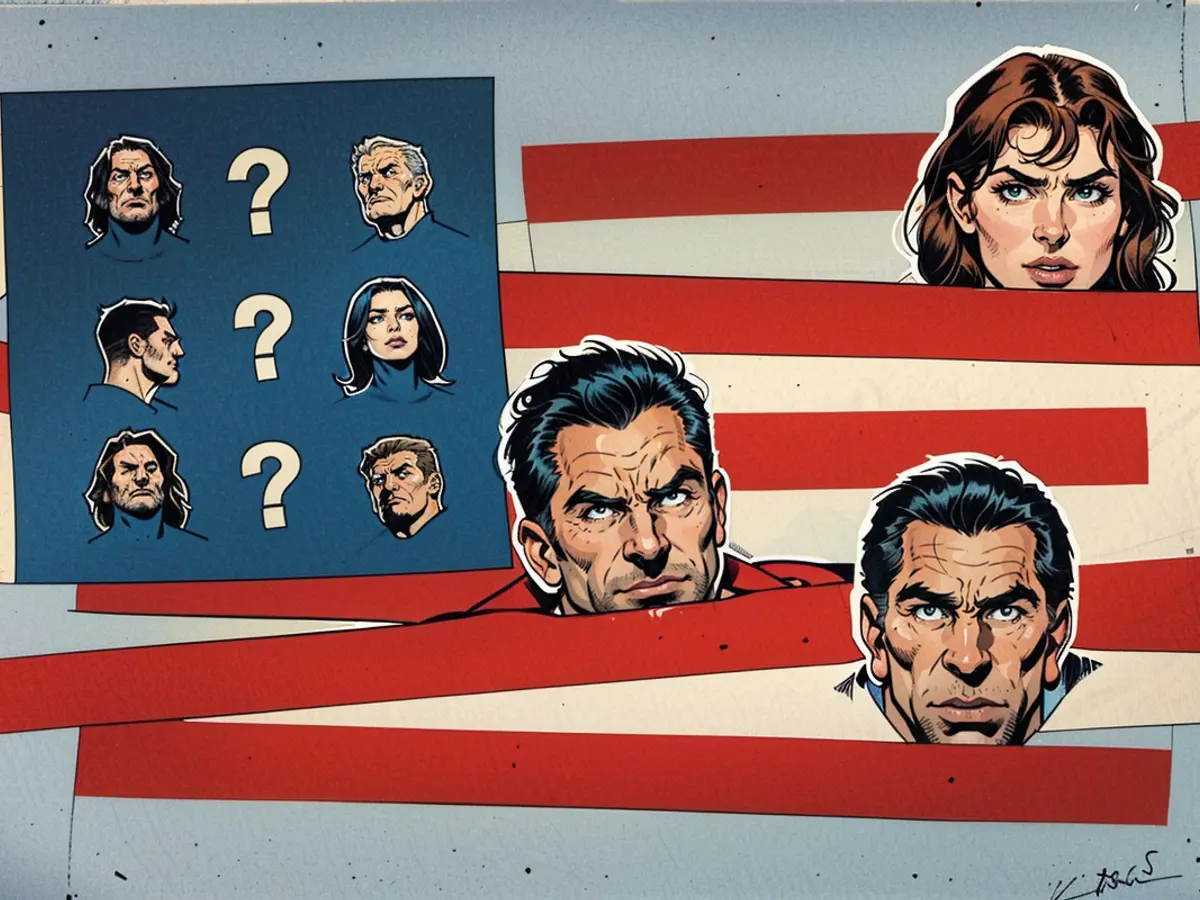Deceptive Celebrity Endorsements emerge as a Tool in Disinformation Struggles, generating ambiguity prior to the 2024 Election.
In the lead-up to the 2024 election, numerous false claims, similar to endorsing Trump, have spread vastly over social media, as per researchers from the News Literacy Project, a neutral group that released a new database on Thursday, packed with over 550 unique instances of election-related misinformation.
The most recent and conspicuous instance of these fabricated claims surfaced on Sunday, when Trump shared a post on Truth Social featuring fake AI-generated images pointing to a significant backing from Swift fans, nicknamed "Swifties for Trump." Trump acknowledged the supposed endorsement by writing, "I accept!"
During his presidency, Swift had criticized Trump as fanning the flames of white supremacy and racism. In the 2020 election, she endorsed Biden but hasn't declared her favoritism towards any candidate in the 2024 race yet.
One image in the collage posted by Trump, portraying Swift as "Uncle Sam," was clearly manipulated, while another, depicting a young woman at a rally, seemed authentic.
The remaining images showing enthusiastic fans cheering Trump contained some characteristics common to AI-generated pictures, according to Lucas Hansen, co-founder of CivAI. These images were "extremely airbrushed," had "top-notch camera quality," and presented "everyone looking stunning." They used "extensive bokeh and background blurring," typical traits of artificial intelligence images, Hansen explained.
The News Literacy Project unveiled its misinformation dashboard to highlight viral falsehoods that pose an existential threat to democracy, as per the organization. They plan to scrutinize these deceptive trends through comprehensive analysis of multiple instances, rather than individual fact-checks.
The database, which will be updated regularly, focuses on various categories of political disinformation, such as conspiracy theories, false statements about candidate policies, and fictitious endorsements. However, it does not measure the frequency of these viral posts' sharing.
Approximately 10% of the viral posts analyzed by the News Literacy Project involved fake endorsements, providing data exclusively to CNN. These posts claimed fake endorsements or public rejections from celebrities like NFL quarterback Aaron Rodgers, actor Morgan Freeman, musician Bruce Springsteen, and former First Lady Michelle Obama.
The posts pertaining to these four figures accumulated at least 10 million views, as per the database. On some occasions, researchers discovered contradictory posts circulating on social media, suggesting that the same celebrity supported and denounced a candidate simultaneously, underscoring the shady and misleading framework users are experiencing.
“Generally, if you notice a celebrity wearing a T-shirt bearing an unambiguous political slogan, it's most likely phony,” said Dan Evon, a senior manager at the News Literacy Project.
The Removal of Barriers
The rampant spread of fake endorsements on social media has occurred as technology platforms dismantle safeguards and moderation policies intended to limit the dissemination of hazardous misinformation.
These adjustments have primarily impacted X, formerly known as Twitter, after Elon Musk purchased the company and dissolved the internal teams tailored to curb election disinformation. Moreover, Musk reinstated the banned accounts of notable conspiracy theorists and extremists.
Experts claim the issue has been amplified by X's AI-powered chatbot, Grok, which faced criticism from election officials for disseminating false information regarding Harris' eligibility in the 2024 election. Last week, X made it possible for users to generate AI-generated images using text prompts, resulting in an influx of deceitful content regarding Trump and Harris.
“In the future, Grok is likely to be one of the primary sources of these types of images because it generates high-quality images, is easily accessible, and was intentionally designed to have a low rejection rate,” Hansen explained, adding that he used Grok to create deceptive images of "Swifties for Trump" resembling the ones Trump shared.
X did not respond to requests for remarks on the creation of misleading images related to political leaders.
Meta, which owns Facebook and Instagram, has also reduced staff from its election integrity teams, as previously reported by CNN. In 2020, Meta claimed that "no tech company does more or invests more in protecting elections," and announced that political advertisers would be required to reveal if they utilized AI to create or modify any images.
However, even as some online platforms have started labeling AI-generated images and refuting the most recent viral lies, the deluge of invented content can still leave an impression.
“If you persistently see these falsehoods that exaggerate a candidate's popularity, it can still linger in your mind, even if you’re aware that it’s not accurate as you skim past it in your feed,” Peter Adams, the News Literacy Project's senior vice president for research, explained to CNN.
While the availability of public AI tools has indeed made it simpler to fabricate misleading claims, including many of the fake endorsements recognized by the News Literacy Project, other misleading images circulating on social media relied on rudimentary photoshopping.
The utilization of artificial intelligence for political disinformation has been “not yet as pervasive and damaging as initially feared,” Adams said, assuming that traditional methods of manipulating images and videos remain, inexpensive but just as effective, for the time being.
The media amplified the spread of these fake endorsements, making them a significant concern in the 2024 election business. Businesses like Meta, which owns Facebook and Instagram, have reduced their staff from election integrity teams, potentially contributing to the proliferation of misinformation.








